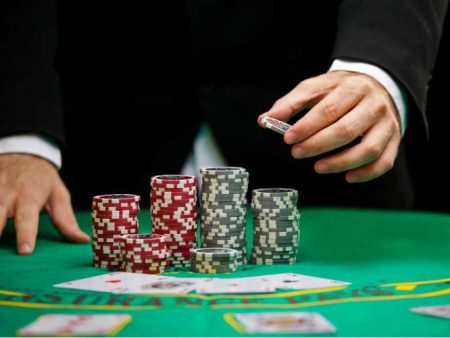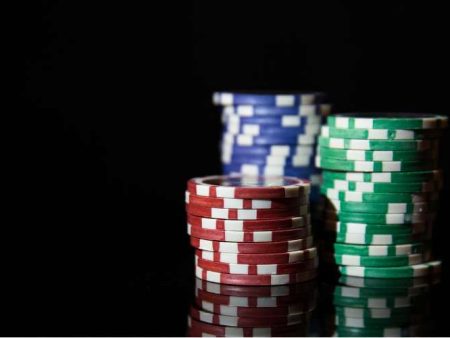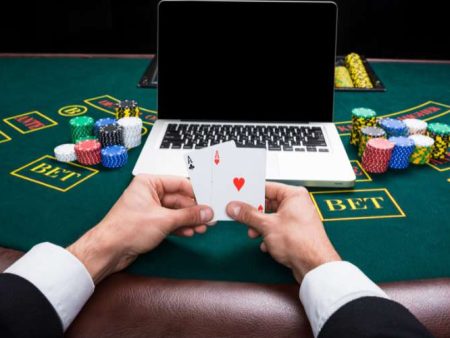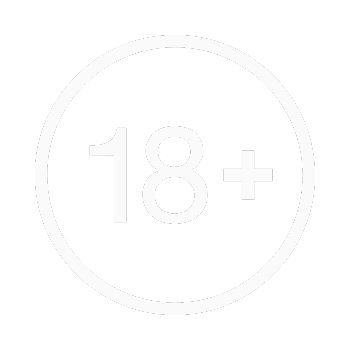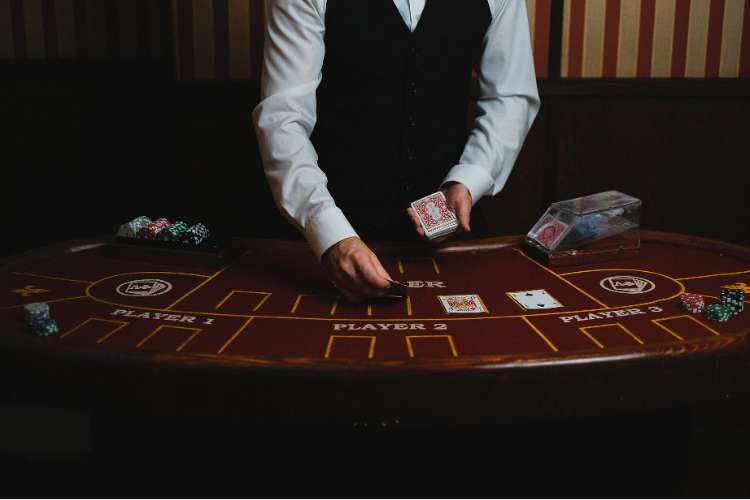
What's on this page
Blackjack is one of the most exciting and strategic games in the casino world. Its mix of skill and chance has made it a favorite among UK players, whether you’re enjoying a night out at a land-based casino or playing from your phone.
One thing I’ve learned is that understanding blackjack odds can give you a real edge. Sure, luck plays a role, but knowing how to calculate the probabilities can help you make smarter decisions and stretch your bankroll. Let’s dive into how you can harness this knowledge to improve your game!
Basics of Blackjack
Objective of the Game
The goal of blackjack is simple: beat the dealer by having a hand value closer to 21 without exceeding it. A “natural” blackjack—an Ace and a 10-value card—pays 3:2, but you can also win by outscoring the dealer or if the dealer busts.
Key Rules and Terminology
Understanding basic terms is essential:
- Hit: Take another card to increase your hand’s value.
- Stand: Stick with your current total.
- Double Down: Double your bet and take one more card.
- Split: Divide a pair into two separate hands.
- Push: A tie with the dealer, returning your bet.
Deck Composition
Blackjack is typically played with one to eight decks of 52 cards. Each card has a point value:
- Number cards (2–10): Face value.
- Face cards (Jack, Queen, King): 10 points each.
- Ace: 1 or 11, depending on what benefits your hand.
The number of decks affects your odds, as we’ll explore later.
Understanding Blackjack Odds
House Edge Explained
The house edge in blackjack is the casino’s built-in advantage. It’s relatively low compared to other games—around 0.5% if you follow a basic blackjack strategy. This makes blackjack one of the most player-friendly games in the casino.
Probability of Key Outcomes
Here are some key probabilities every player should know:
- Getting a natural blackjack: ~4.75% (or about 1 in 21 hands).
- Busting after hitting: Depends on your total. For example, if you have 16, there’s a 62% chance of busting if you hit.
- Dealer busting: Roughly 28% overall, but it varies based on their upcard.
How Deck Size Affects Odds
The number of decks impacts the house edge. Single-deck games offer better odds, but they’re harder to find and often have stricter rules. Here’s how deck size influences the house edge:
| Decks Used | House Edge |
| Single | ~0.17% |
| Double | ~0.46% |
| 4–8 | ~0.65% |
Key Blackjack Odds to Know
Odds of Drawing Specific Cards
The odds of drawing a 10-value card are high because 16 out of 52 cards in a deck have that value. That’s about a 31% chance.
Odds of Winning a Hand
Your chances of winning depend on several factors, such as your total and the dealer’s upcard. For example, if you hold a total of 20, your odds of winning are over 80% unless the dealer has an Ace or a 10.
Odds of Doubling Down Successfully
Doubling down can be highly profitable if done in the right situations. For example, doubling on a total of 11 gives you a strong chance of hitting a high card and beating the dealer.
Odds of Splitting Pairs
The decision to split pairs depends on the cards. Splitting Aces and 8s is usually a smart move, as it increases your winning potential. However, splitting 10s is generally a bad idea, as a total of 20 is already strong.
How to Calculate Odds in Blackjack
Basic Probability Principles
Calculating blackjack odds starts with basic probability. Each card drawn affects the remaining deck, which alters your chances of getting specific cards. Understanding this dynamic is key to improving your gameplay.
Calculating Hand Probabilities
For instance, if you’re holding a total of 16 and the dealer shows a 10, you might wonder whether to hit or stand. To calculate the probability of busting:
- Cards that will bust you: 10, Jack, Queen, King (16 total cards).
- Remaining cards in a standard deck: 36.
- Probability of busting: 16/36 = ~44%.
Using a Blackjack Strategy Chart
One of the best tools for beginners and seasoned players alike is a blackjack strategy chart. These charts outline the statistically best moves for every possible hand based on the dealer’s upcard. Following them closely can significantly lower the house edge.
Real-Life Calculation Example
Let’s say you’re dealt a 9 and a 3, giving you a total of 12, and the dealer has a 5. Should you hit or stand? Using a blackjack strategy chart, you’ll see that standing is the optimal move since the dealer is likely to bust. Calculating this based on probabilities improves your confidence in such decisions.
The Role of Card Counting in Odds Calculation
What is Card Counting?
Counting cards in blackjack involves tracking high and low cards to determine whether the remaining deck favors the player or the dealer. It’s a skill that can shift the odds in your favor.
How Card Counting Affects Odds
When more high-value cards remain in the deck, your chances of getting a blackjack or a strong total improve. By adjusting your bets accordingly, you can maximize your profits during favorable conditions.
Legal and Ethical Considerations in the UK
Card counting isn’t illegal, but casinos discourage it and may ask you to leave if they suspect you’re counting cards. Online blackjack uses continuous shuffling, making it nearly impossible to count cards effectively.
Practical Tips for Improving Your Odds
Mastering Basic Strategy
Learning and consistently applying a basic blackjack strategy is the most effective way to improve your odds. This strategy involves making the mathematically best decision in every situation.
Choosing the Right Game Variations
Different blackjack variations come with different rules that affect your odds. For UK players, European Blackjack is a popular option, as it typically offers a lower house edge compared to American Blackjack.
Bankroll Management
Managing your bankroll is crucial. Set a budget before you start playing and stick to it. Avoid chasing losses, and remember that blackjack should be fun, not stressful.
Myths and Misconceptions About Blackjack Odds
Believing in “Winning Streaks”
Many players fall into the trap of thinking they’re due for a win after a series of losses. This belief doesn’t align with the game’s probabilities, as each hand is independent.
The Gambler’s Fallacy
Similarly, some players believe that a specific outcome is “overdue.” For example, if no one has hit a blackjack in a while, they might think it’s more likely to happen soon. In reality, odds remain the same.
Assuming Odds Are Fixed
While the basic probabilities of the game don’t change, factors like the number of decks, table rules, and player decisions can shift the odds.
Responsible Gambling Practices
Setting Limits for Time and Money
Responsible gaming starts with self-control. Set a time limit for your session and stick to a pre-defined budget. This keeps the game enjoyable and prevents overspending.
Recognizing Problem Gambling
If you ever feel that gambling is becoming more than just a fun activity, take a step back. Organizations like GamCare and BeGambleAware offer free resources and support to UK players.
Conclusion
Understanding how to calculate blackjack odds can elevate your game and give you a competitive edge. By mastering key concepts like house edge, probabilities, and using a blackjack strategy chart, you’ll play smarter and enjoy more success.
Remember, blackjack is a game of skill and strategy, but it’s also meant to be fun. So, practice your skills, play responsibly, and may the cards be ever in your favor!
